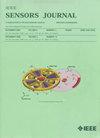小样本条件下基于深度神经网络的机载雷达杂波抑制算法
IF 4.3
2区 综合性期刊
Q1 ENGINEERING, ELECTRICAL & ELECTRONIC
引用次数: 0
摘要
空时自适应处理(STAP)是机载雷达系统中抑制杂波的一种有效技术。然而,在实际应用中,STAP的性能往往受到独立和同分布(i.i.d)样本的有限可用性的影响,这限制了其杂波抑制能力。受压缩感知的启发,研究人员广泛研究了基于稀疏恢复的STAP (SR-STAP)算法,该算法可以在理想条件下实现近乎最佳的性能。然而,在存在空间和时间误差的情况下,这些算法的性能会显著下降。为了解决这个问题,我们提出了一种用于杂波抑制的深度神经网络框架,将无网格稀疏恢复网络(GLSRNet)与生成对抗网络(GAN)级联,确保在有误差的小样本条件下准确估计杂波协方差矩阵。在GAN训练过程中,我们观察到传统的二元交叉熵(BCE)损失函数导致训练损失显著振荡,阻碍了有效收敛。为了解决这个问题,我们设计了一种新的损失函数,它可以达到稳定的收敛。大量实验验证了该算法抑制杂波的有效性。本文章由计算机程序翻译,如有差异,请以英文原文为准。
Robust Airborne Radar Clutter Suppression Algorithm via Deep Neural Networks Under Small-Sample Conditions
Space-time adaptive processing (STAP) is a powerful technique for clutter suppression in airborne radar systems. However, in practical applications, STAP performance is often compromised by the limited availability of independent and identically distributed (i.i.d.) samples, which restricts its clutter suppression capabilities. Inspired by compressed sensing, researchers have extensively investigated sparse recovery-based STAP (SR-STAP) algorithms, which can achieve near-optimal performance under ideal conditions. Yet, these algorithms experience notable performance degradation in the presence of spatial and temporal errors. To address this issue, we propose a deep neural network framework for clutter suppression, cascading a gridless sparse recovery network (GLSRNet) with a generative adversarial network (GAN), ensuring accurate clutter covariance matrix estimation under small-sample conditions with errors. During GAN training, we observed that the traditional binary cross-entropy (BCE) loss function led to significant oscillations in the training loss, impeding effective convergence. To resolve this, we design a new loss function that achieves stable convergence. Extensive experiments validate the effectiveness of the proposed algorithm in clutter suppression.
求助全文
通过发布文献求助,成功后即可免费获取论文全文。
去求助
来源期刊

IEEE Sensors Journal
工程技术-工程:电子与电气
CiteScore
7.70
自引率
14.00%
发文量
2058
审稿时长
5.2 months
期刊介绍:
The fields of interest of the IEEE Sensors Journal are the theory, design , fabrication, manufacturing and applications of devices for sensing and transducing physical, chemical and biological phenomena, with emphasis on the electronics and physics aspect of sensors and integrated sensors-actuators. IEEE Sensors Journal deals with the following:
-Sensor Phenomenology, Modelling, and Evaluation
-Sensor Materials, Processing, and Fabrication
-Chemical and Gas Sensors
-Microfluidics and Biosensors
-Optical Sensors
-Physical Sensors: Temperature, Mechanical, Magnetic, and others
-Acoustic and Ultrasonic Sensors
-Sensor Packaging
-Sensor Networks
-Sensor Applications
-Sensor Systems: Signals, Processing, and Interfaces
-Actuators and Sensor Power Systems
-Sensor Signal Processing for high precision and stability (amplification, filtering, linearization, modulation/demodulation) and under harsh conditions (EMC, radiation, humidity, temperature); energy consumption/harvesting
-Sensor Data Processing (soft computing with sensor data, e.g., pattern recognition, machine learning, evolutionary computation; sensor data fusion, processing of wave e.g., electromagnetic and acoustic; and non-wave, e.g., chemical, gravity, particle, thermal, radiative and non-radiative sensor data, detection, estimation and classification based on sensor data)
-Sensors in Industrial Practice
 求助内容:
求助内容: 应助结果提醒方式:
应助结果提醒方式:


